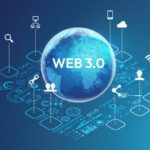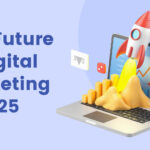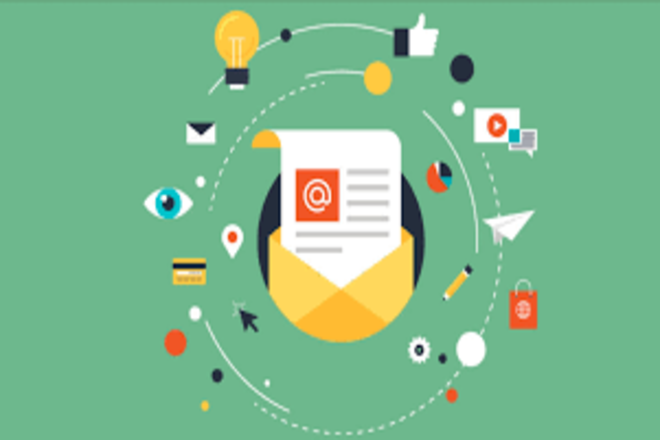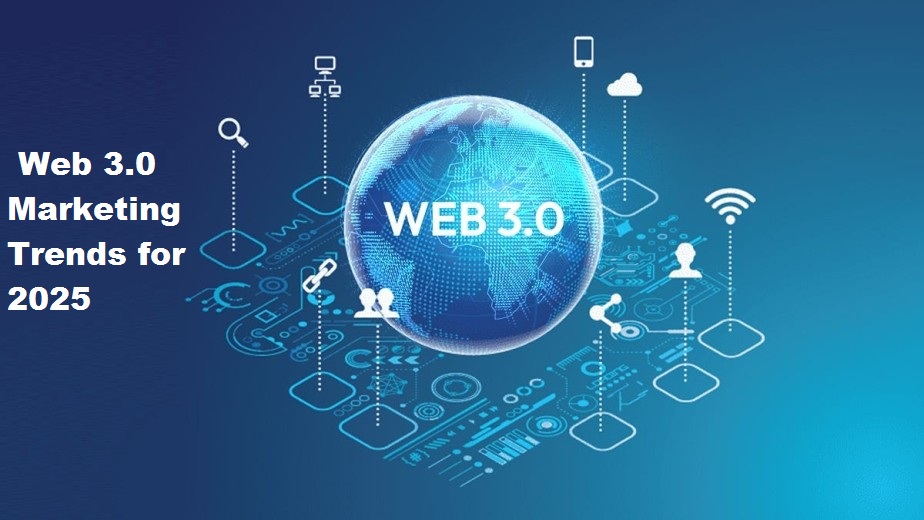Marketers need precise and actionable marketing data for conducting data-driven marketing. Data-driven businesses make their decisions using data & analytics. If you use data to bring the desired results that your organization requires, then the decisions that guide you to achieve those results will use customer data rather than gut feeling. Here, we will discuss B2B data-driven marketing. Instead of trial and error marketing practices, the data-driven marketing approach is more pinpointed and result-driven.
What is Data-Driven Approach or Data-Driven Marketing?
If a company tries to implement a “data-driven” approach, it makes strategic decisions based on data analysis and interpretation. It makes sure the companies analyze and organize their data with the objective of better serving their consumers.
Data-driven marketing is the process of optimizing brand communication based on customer data. Marketers use customer or consumer data to predict necessities, objectives, and future activities. Such know-how helps develop personalized marketing tactics to get the highest expected return on investment (ROI).
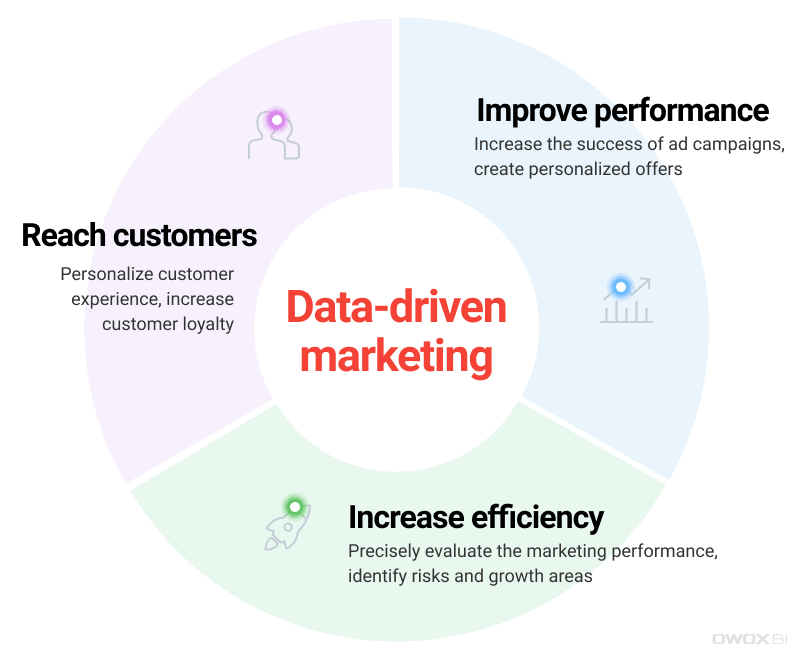
Data-driven marketing is a type of marketing that employs data gained from customer interactions so that third parties can have a better knowledge of customer preferences, motivations, and behaviors. Data-driven marketing helps companies to optimize the marketing channel and in turn, improve the customer experience leading to higher revenue and profit.
What is B2B data driven marketing?
B2B data driven marketing is a technique to use data and evidence to drive strategy. It is a process where data is collected and analysis of data is done from several situations. Business to Business (B2B) marketing data is the information used for effectively marketing the products from business to business.
Data-driven marketing helps in making better decisions and creates an ideal condition for digitalization success. To some extent, all companies are driven according to the information received. Beyond this, the decisions are based on personal experience and gut feeling.
Once the marketers are successful in collecting enough data about their performance and with whom they are interacting, they will be able to make effective decisions. If they have access to up-to-date and valuable contact details and contact information, they could make better marketing decisions as you more details about the prospects. In the case of marketing, particularly B2B marketing, the correct use of data is transformative.
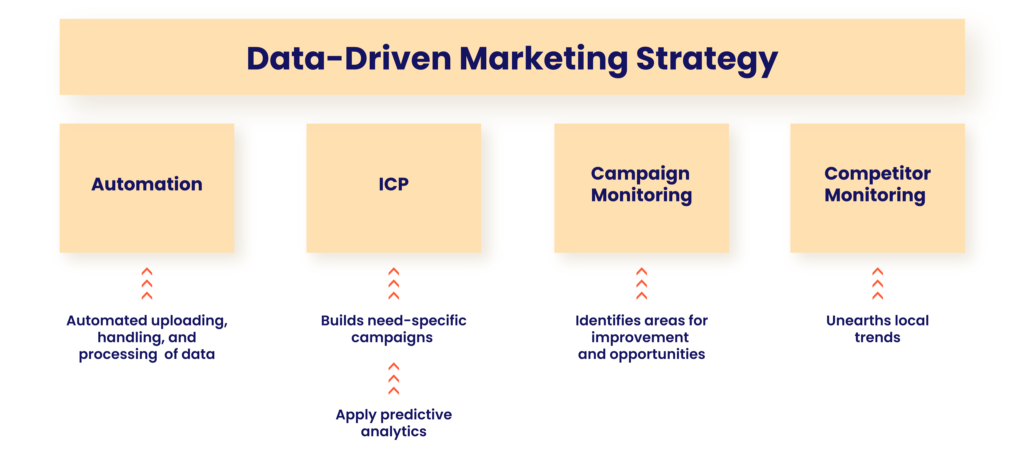
“Data-driven” is the collection of data in a definite or targeted way, analysis, and using that data to improve the decision-making and scaling high in business via automation. Once data-driven marketing was considered a mysterious black art, this is now a quantifiable and data-based function very important to company operation.
How can you apply data-driven marketing approach?
Experienced salespeople know about the symptoms of buying found in the body language of the sales prospects. In the case of data-driven marketing, it collects information about the customer’s interest based on his/her body language. Such type of marketing can identify the customers by their targeted activities and try to establish contact with them via mobile numbers, email details, etc.
Data-driven marketing helps organizations to know which of the measures are effective. With consistent measurement and optimization, the channels, content, and times can be optimized. Instead of implementing a number of methods, data-driven marketing chooses the most effective measures. Here, the decision-makers employ objective information to simulate what are the measures that produce better results.
Major Elements of B2B data driven marketing
- Data-driven marketing thinking is important for Digital Transformation
- Creativity
- Customer focus
- Innovations
- Decision-making
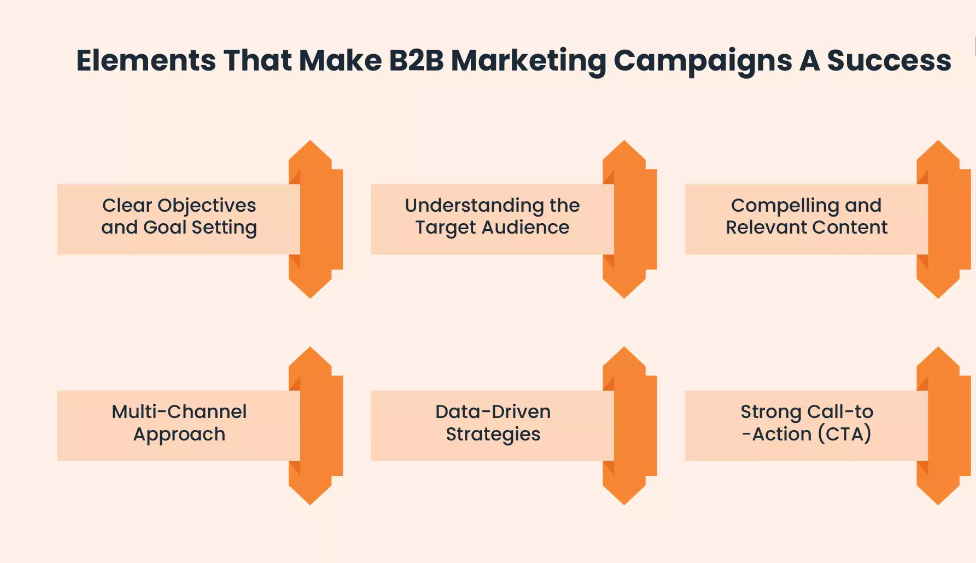
What are B2B data driven marketing strategies?
B2B (business-to-business) marketing is a type of marketing strategy or content that is directed towards a business or organization. The company that offers products and services to other businesses or organizations usually employs B2B marketing strategies.
- TARGET MARKET STRATEGIES: To know your target market is one of the important areas of concern for a marketer. There are mainly three informants for target market data:
- Look-alike modeling: This is the profile of the target audience that identifies the crucial characteristics. This data is very useful as it helps target the ads.
- Firmographic: It is related to characteristics of prospect organizations that include size, location & industry.
- Technographic data: It defines the buying characteristics and behaviors of the target audience relating to technology purchases. This helps the users to bring down the users of the funnel.
- LEVERAGE THE TRENDS FROM MARKETING CHANNELS TO INFORM OTHERS: The most critical aspect of marketing is testing. However, there are methods such as PPC data. There is data from the PPC strategy such as the actual search volume and different combinations arising out of keyword query. By using data, you will determine which of the keywords are driving users down to the funnel and can apply these theories to organic SEO.
- PERSONALIZED MARKETING: Studying your target audience can have paramount importance. The data received from analyzing the target audience will help in creating more personalized content. As you have reliable information about target audience profiles, you can produce well-directed marketing campaigns to reach a definite audience.
Benefits of Data-Driven Marketing
The main benefit of B2B data marketing lies in the strategy it offers, greater ROI, and overall success of the campaigns. If you improve the accuracy and speed of the marketing campaign, then your efforts will be more effective and productive.
- It brings clarity to the target audience to market your products better.
- It helps in using predictive analytics to speculate on future trends in your consumer base.
- It identifies the preferred channels to channel your marketing efforts and get them optimized.
- It improves the customer experience for your ongoing audience.
Join us at….

